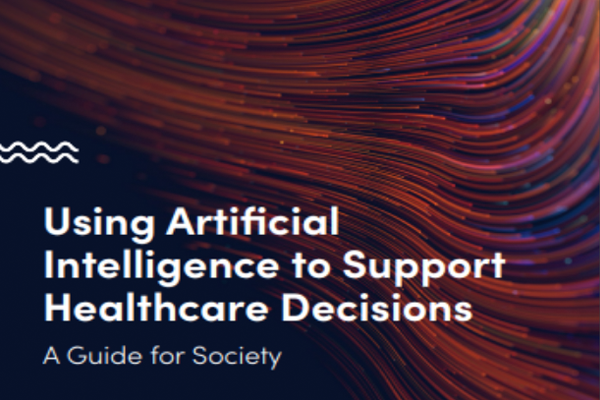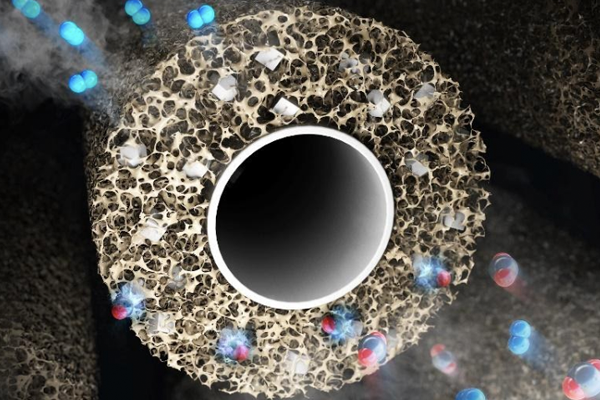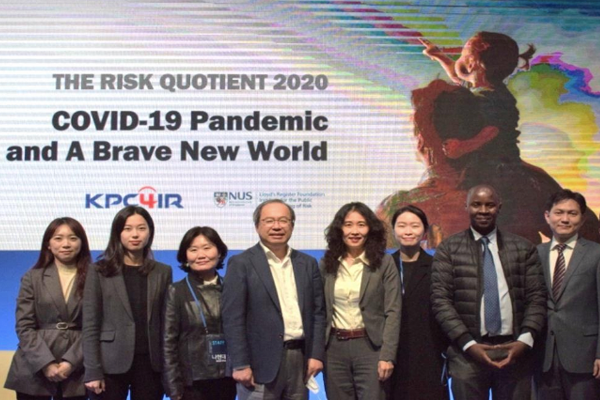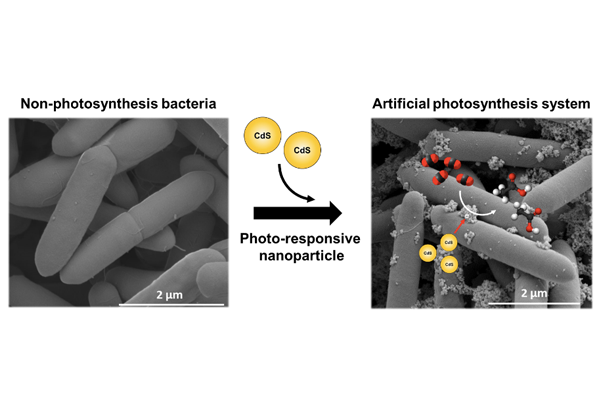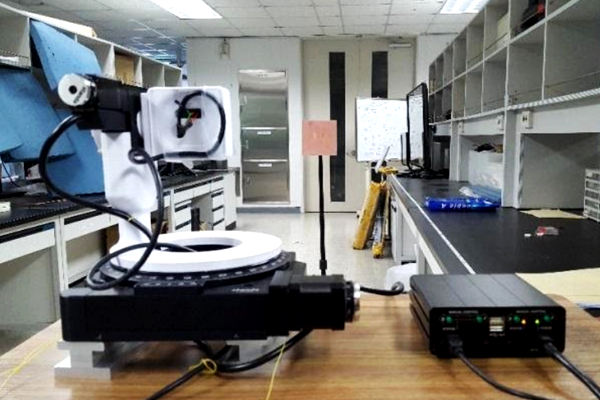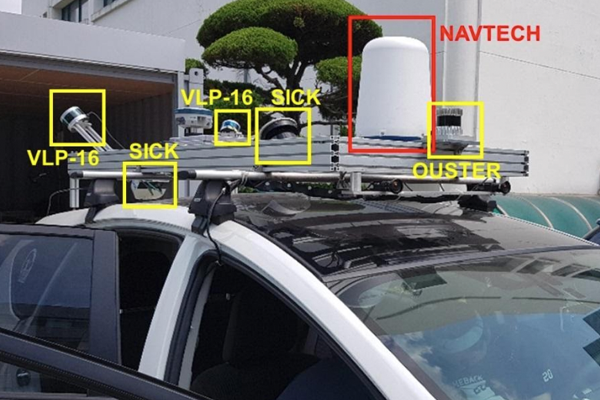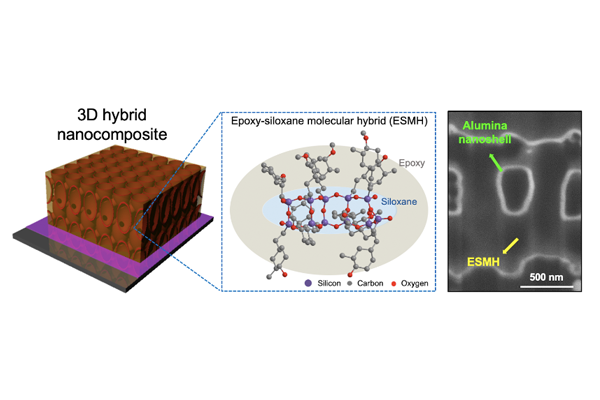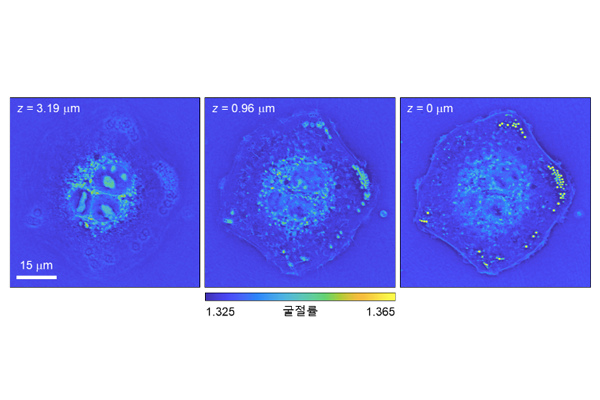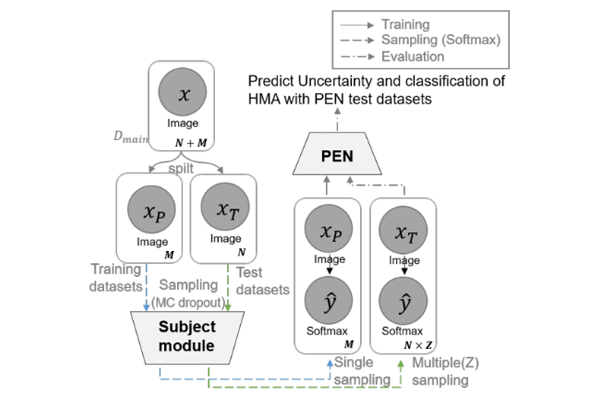-
Research Highlight
The KAIST Korea Policy Center for the Fourth Industrial Revolution (KPC4IR) published a guide entitled “Using AI to Support Healthcare Decisions: A Guide for Society” through international collaboration with experts from the UK and Singapore.
KPC4IR developed the world’s first guide to the use of artificial intelligence in healthcare for society in collaboration with the Lloyd’s Register Foundation Institute for the Public Understanding of Risk at the National University of Singapore and Sense about Science, a non-profit organization in the UK. The guide was presented during the 2021 SIG-KDD (Special Interest Group on Knowledge Discovery and Data Mining) Conference on August 15. This AI guide specialized for the healthcare sector helps citizens receive safe and precise biomedical diagnoses and treatments. It is a timely guide to the use of artificial intelligence for society in the era of accelerating digital innovations under COVID-19. ...read more
-
Research Highlight Top Story
Fiber Sorbents for Energy-Efficient CO2 Capture
Prof. Koh’s group conceived a feasible route for developing a scalable platform for CO2 capture (including direct air capture) using metal-organic frameworks. MOF-based fiber sorbents show high CO2 uptake and low pressure drop for long-term cyclic operation in direct air capture mode....read more
-
Research Highlight
KPC4IR hosted an international online conference, 'The Risk Quotient 2020: COVID-19 Pandemic and A Brave New World'
The KAIST KPC4IR (Korea Policy Center for the 4th Industrial Revolution) and the Lloyd's Register Foundation Institute for the Public Understanding of Risk (IPUR) at the National University of Singapore (NUS) jointly hosted the Risk Quotient (RQ) 2020 edition. The conference focused on digital innovation accelerated by COVID-19, structural changes in the economy, and response strategies through the 4th Industrial Revolution technologies. Leading global experts from academia, the public, and industry, including NUS, Tsinghua University, the University of Tokyo, the Korea Educational Development Institute, the Korea Information Society Development Institute, and Kakao Mobility, were invited to examine significant challenges to help Asia navigate the post-COVID-19 and Fourth Industrial Revolution (4IR) eras....read more
-
Research Highlight
Eco-friendly C1 gas conversion technology using microbe-photo-responsible nanoparticle hybrid system
Prof. Cho’s group has developed an artificial photosynthesis system using a non-photosynthesis microorganism attached to photo-responsive nanomaterials....read more
-
Research Highlight
Radar-Assisted Channel Measurement System for Beyond 5G Wireless Communication in Sub-THz Band
Prof. Gye-Tae Gil’s research team at the KI IT Convergence Lab. developed a novel technique for estimating the path loss parameter of a wireless channel using a monostatic radar, and showed the feasibility of the technique through a channel measurement campaign in a real indoor environment....read more
-
Research Highlight
Radar-based Navigation for All-weather Autonomous Driving
Radar is a widely adopted sensor for automotive and military purposes; however, few studies have focused on using radar as the dominant navigational sensor. Unlike Light Detection and Ranging (LiDAR) and cameras, radar is less sensitive to light condition and even robust under heavy rain or dust....read more
-
Research Highlight
Ultrahard, Yet Flexible Hybrid Nanocomposite Reinforced by 3D Inorganic Nanoshell Structures for Flexible Protective Film
Prof. S. Jeon, B.-S. Bae, S.M. Han, and J.-W. Hong’s groups have developed a nontrivial type of nanocomposite combining organic-inorganic (O-I) hybrid materials with 3D oxide nanostructure. The 3D hybrid nanocomposite film simultaneously achieves superior hardness, optical transparency, and flexibility....read more
-
Research Highlight
Development of semiconductor quantum dot symmetry control technology
Prof. Cho's group succeeded in controlling the triangular symmetry of nitride semiconductor quantum dots for the first time by using a three-dimensional nano-pyramid structure and a self-limited growth method. With precise control of the symmetry of the quantum dots, it would be useful for developing polarization-entangled photon pair emitters....read more
-
Research Highlight
New method enables holographic imaging without interferometry
Prof. YongKeun Park’s group has developed a novel method for non-interferometric holographic imaging. The method, based on Kramers-Kronig relations, provides holographic images of biological specimens using an optical microscope simply by controlling the illumination beam....read more
-
Research Highlight
Accessing human uncertainty via the lens of deterministic neural networks
Prof. Sang Wan Lee’s team explored the possibility of accessing human uncertainty via the lens of deterministic neural networks. Medical image diagnosing tests with 64 physicians showed that an ensemble neural network has the capacity to perform human uncertainty inference....read more

291 Daehak-ro Yuseong-gu Daejeon, 34141, Republic of Korea
Partnered with KAIST Breakthroughs and KAIST Compass
